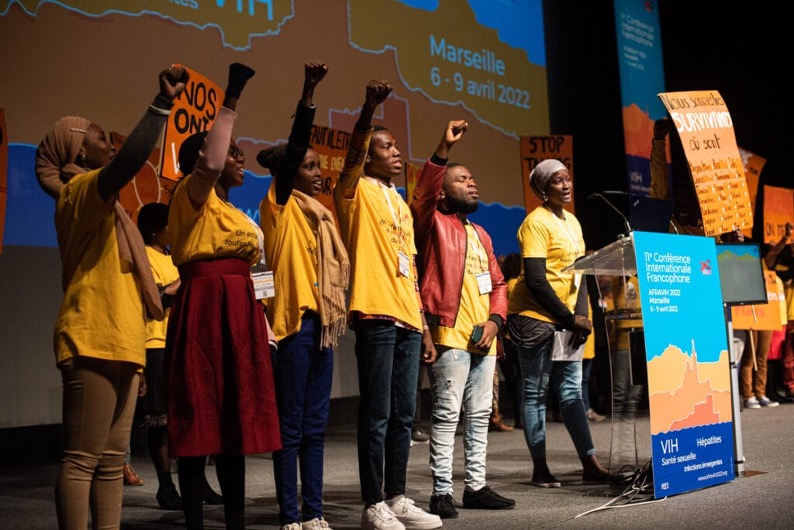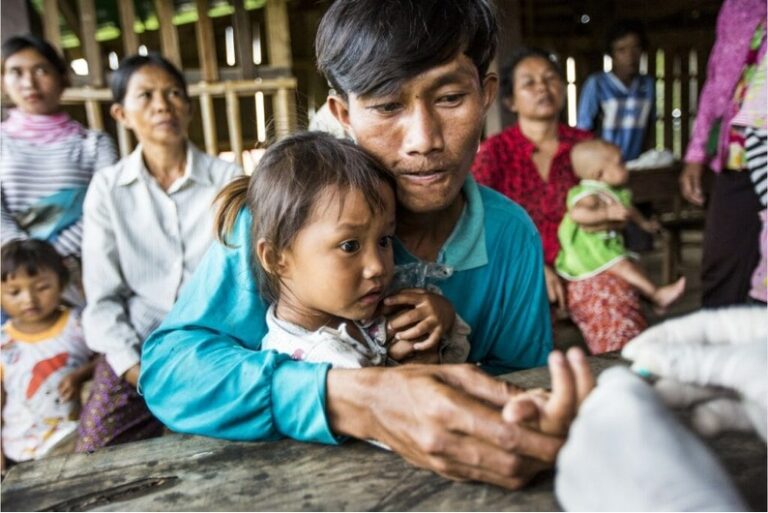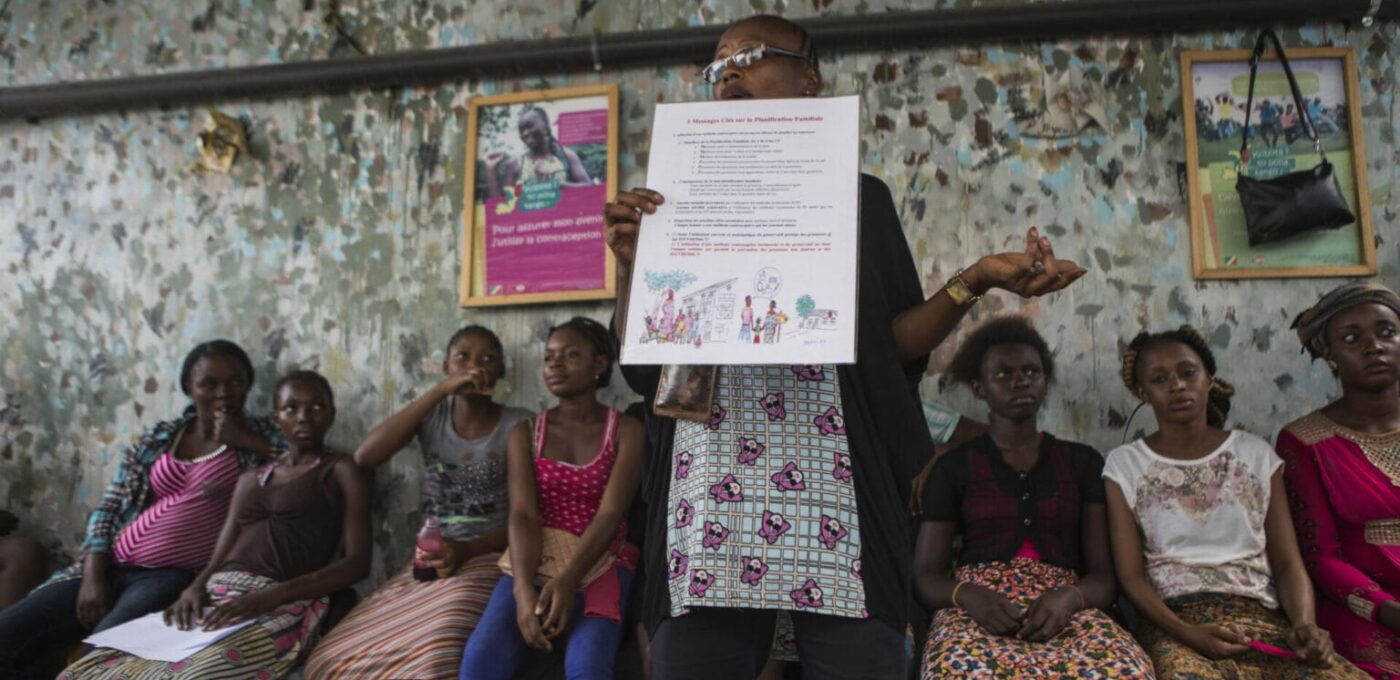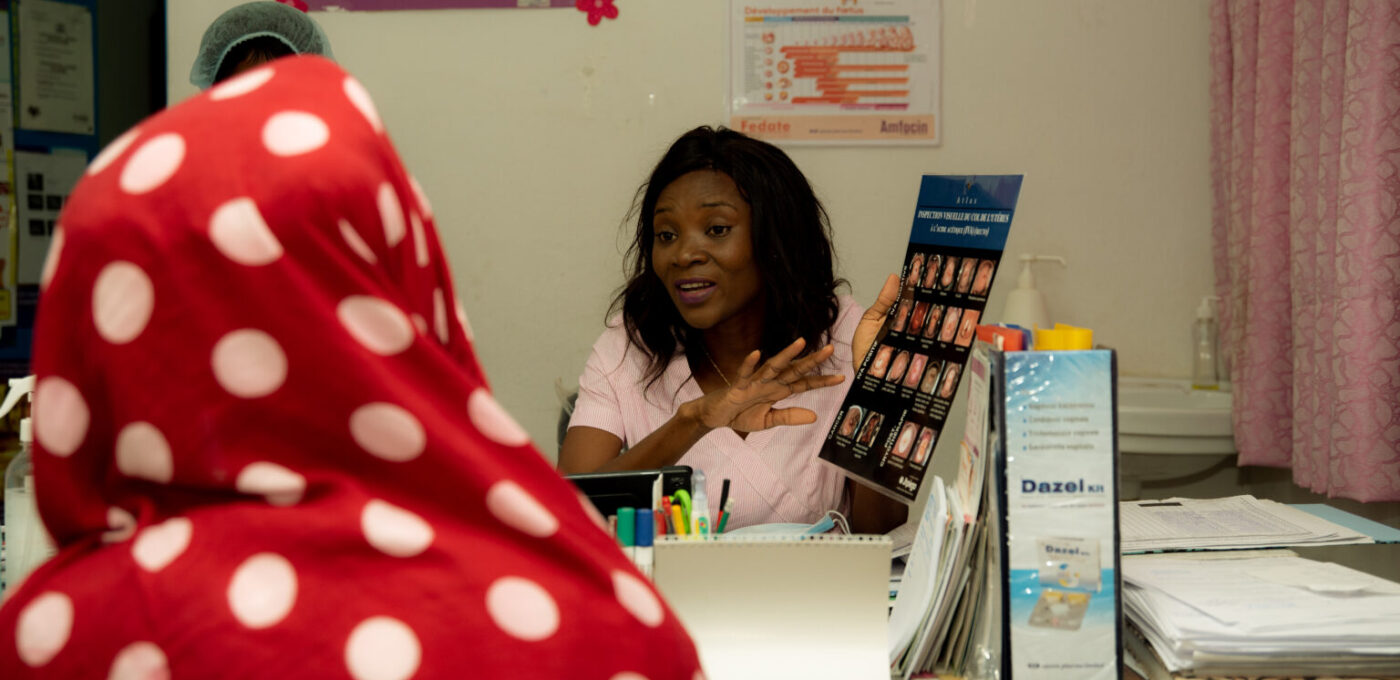The Human Immunodeficiency Virus (HIV) remains a global public health threat, with 39.9 million people living with HIV in 2023. L’Initiative is committed to supporting efforts to end AIDS by 2030, in line with the United Nations’ ambitious goal.
In 2023, one person died of AIDS—a condition caused by the Human Immunodeficiency Virus (HIV)—every minute. Without treatment, AIDS is marked by the onset of opportunistic infections and diseases, which develop as immunosuppression worsens due to the progression of HIV infection.
While access to treatment has improved significantly, with 30.7 million people receiving antiretroviral therapy, much remains to be done to eradicate this epidemic. According to UNAIDS, 660,000 HIV-positive children still lacked access to treatment in 2022, and every week, 4,000 adolescent girls and young women aged 15 to 24 contracted HIV worldwide. These challenges are compounded by persistent barriers to healthcare access, particularly in sub-Saharan Africa, underscoring the urgent need for a coordinated and equitable global response.
The urgent need for a unified response

Despite these challenges and the lack of a preventive or curative vaccine, countries that invest heavily in a coordinated and collective response are achieving promising results. L’Initiative aligns its efforts with the 2021–2026 Global AIDS Strategy, End Inequalities, End AIDS, which calls for the mobilization of political, social, and economic stakeholders, as well as people living with HIV and the most vulnerable populations to the pandemic. The goal is to promote a united approach that upholds the right to health for everyone, while working together to eradicate both inequalities and AIDS.
Our commitments in the face of a persistent pandemic
Through L’Initiative, France actively contributes to the global response. In 2023, €16.7 million were allocated to catalytic projects and technical assistance specifically targeting HIV.
This commitment allows us to align with UNAIDS’ goal of ending AIDS by 2030. To achieve this, we support projects that promote HIV testing and treatment for children, the de-medicalization of prevention and diagnostic processes, the response to HIV co-infections—particularly tuberculosis and human papillomavirus—as well as advocacy, prevention, and care efforts for marginalized populations.
Acting for the youth
Around 2.7 million children and adolescents live with HIV worldwide. UNAIDS estimates that only half of them (52%) have access to antiretroviral treatment. L’Initiative is intensifying its efforts through expertise sharing on pediatric HIV, as well as targeted projects and expertise. It provides its experts with resources on the transition to new pediatric treatments.
L’Initiative also supports the Passerelles project, led by Sidaction, aimed at improving access to HIV prevention and care services for children, adolescents, and young people in Burundi, Togo, and Côte d’Ivoire. The goal is to strengthen youth leadership and participation in decision-making processes and actions to combat HIV among children and adolescents. Côte d’Ivoire. Le but : consolider le leadership et la participation des jeunes aux processus décisionnels et aux actions de lutte contre le VIH chez les enfants et les adolescents.
Deploying new pediatric treatments

We contribute to the dissemination of best practices in prevention and to better information on innovative pediatric treatments. Among the most recent and recognized molecules, dolutegravir is now available in a pediatric formulation and is recommended by the WHO. To accelerate its rollout, we have developed a “toolkit” for partner experts, particularly those in West and Central Africa, where access to the treatment has been delayed.
Improving access to sexual and reproductive health and rights
Sexual and reproductive health and rights (SRHR) are linked to the recognition and protection of individuals’ fundamental rights in matters of sexuality, reproduction, health, and sexual well-being.
Through its 2023–2027 strategy, France acknowledges and defends everyone’s right to make autonomous and informed decisions regarding their partners, sexuality, sexual and reproductive health, as well as their practices, contraception, and choice to start a family.
L’Initiative has strengthened its focus on these issues by funding technical assistance missions and operational research or intervention projects targeting these areas, benefiting health ministries, research institutes, civil society organizations, and/or coordinating bodies for Global Fund grants.
In the Democratic Republic of Congo, Mauritania, Côte d’Ivoire, and Senegal, L’Initiative supports associations that work to inform adolescents and young girls about their rights, guide them to appropriate healthcare services, and provide comprehensive care for HIV, tuberculosis, malaria, and their co-infections.
Strengthening care and support
Despite the expanded access to antiretroviral therapy, 630,000 people still die from HIV worldwide every year. Many patients enter the healthcare system at an advanced stage of the infection, with a high risk of developing severe diseases. To save these patients, a precise protocol must be followed by well-trained doctors who have access to the necessary tests and treatments. L’Initiative has created a dedicated “toolkit” to equip experts and programs in French-speaking Africa working to strengthen the response to advanced HIV.
Valuing community expertise
We cannot end the HIV epidemic without directing more efforts toward the most vulnerable communities. Community actors play a vital role in this process through de-medicalization. This approach involves reaching out to the most exposed individuals by training community health workers to carry out tasks traditionally performed by doctors or nurses in hospitals or health centers. In doing so, populations that are typically distant from prevention and diagnostic opportunities can be tested and guided toward care for treatment.
Encouraging peer education

This approach involves the engagement of a “peer,” meaning someone from the same social group as the beneficiary, particularly due to factors like age or professional background. L’Initiative supports projects and associations that place peer education at the heart of care, especially in West and Central Africa, where over 100,000 young people—two thirds of whom are girls—are infected with HIV each year. In response to the scale of the situation, the NGO Solthis is leading the PAJES project, which aims to strengthen an inter-associative advocacy for SRHR by empowering adolescent girls in Guinea.
Addressing the risks of co-infections
The threat of co-infections is a heavy burden for people living with HIV. If they contract another infection (e.g., human papillomavirus, tuberculosis, viral hepatitis, etc.), the clinical progression of the new disease becomes more uncertain, and its management is more complex compared to seronegative individuals. Each of these co-infections requires targeted care and specific prevention actions. To address this, L’Initiative supports NGOs such as Santé Diabète in Mali, Burkina Faso, and the Comoros to improve care for HIV/diabetes comorbidities.
These co-infections become more pronounced with age, as new age-related conditions (such as hepatitis or hypertension) add to the challenges of managing HIV. A quarter of HIV-positive patients are over 50. To better address these co-infections, L’Initiative supports the VIHeillir project, which provides an integrated health approach for seniors living with HIV in Cameroon and Senegal.
Fighting cervical cancer

The links between HIV, human papillomavirus (HPV), and cancers are well established: immunocompromised women are more vulnerable to HPV infection, which can lead to cervical cancer. In 2022, L’Initiative dedicated its call for operational research projects to the HIV/HPV co-infection and associated cancers. Among the projects funded, one from the French research institute Bouisson Bertrand will assess the feasibility and acceptability of a cervical cancer screening program integrated into reproductive health services for both HIV-positive women and the general population. Technical assistance from the Initiative has also enabled Cambodia’s National Center for HIV/AIDS, Dermatology, and STDs (NCHADS) to develop standardized operating procedures to support cervical cancer screening for women living with HIV and receiving care at antiretroviral treatment sites.
Putting marginalized populations at the center
Marginalized populations often face economic hardship and social isolation, making access to healthcare services more difficult. They may experience discrimination and be denied care based on their gender, gender identity, sexual orientation, migration status, or occupation. In response, L’Initiative is committed to developing targeted advocacy and undertaking concrete actions to support these communities, who are more exposed to the risk of infection. This includes ensuring that the needs of these populations are integrated into funding requests.
To accelerate the fight against HIV-related stigma and discrimination, L’Initiative has partnered with UNAIDS to support the community response and reduce inequalities in access to care and treatment for the most vulnerable populations in six West and Central African countries.
Ensuring access to healthcare for transgender people
L’Initiative supports the international organization Enda Santé in Côte d’Ivoire to address the specific needs of transgender individuals and combat the discrimination they face. The REVU Trans project aims to promote their inclusion and increase their representation within health initiatives.

